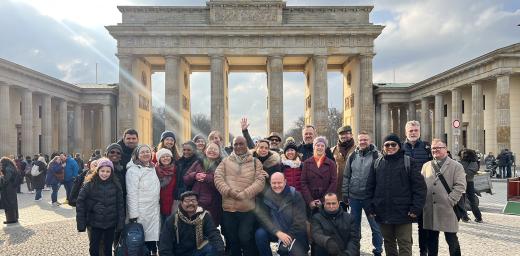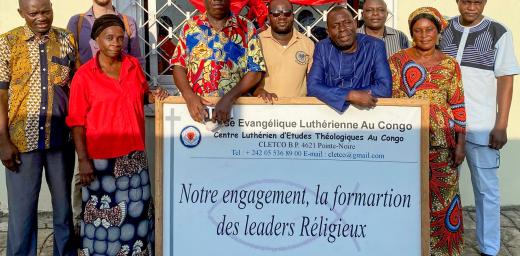(LWI) - How to support theological institutions around the globe that have struggled to adapt to the new challenges posed by the past two years of the COVID pandemic? That’s the focus of a conference, being organized jointly by The Lutheran World Federation (LWF), the World Communion of Reformed Churches (WCRC), the World Council of Churches (WCC) and Evangelische Mission Weltweit (the association of Protestant churches and missions in Germany). The hybrid meeting will be based in Ghana from 5 to 7 December on the theme of ‘Theological Education: Pandemic and Pedagogy’.
The organizers note that although theological teaching has been taking place online for many years, the unprecedented lockdowns and other restrictions caused by the pandemic challenged many institutions that “were either pedagogically unprepared or lacked infrastructure for online learning.” Some adapted well to the new formats, they point out, but for many, the lack of residential income and ancillary institutional support exacerbated the existing crisis of sustainability.
Even as countries emerge from the acute restrictions of the pandemic, the organizers underline the importance of taking stock of online educational experiences and exploring “the threats and opportunities that have surfaced” in the wake of the pandemic. “While we must address new threats to education equity and theological discourse,” they add, “we celebrate the ways that increased connectivity can provide new opportunities for decolonizing learning and transformative pedagogies.”
Formation and transformation
The conference for theological educators will be based at Trinity Theological Seminary in Accra, with online participation. Among the topics to be explored in hybrid sessions will be the impact of stress and isolation on the quality of life and learning for staff and students, as well as ways of promoting healing and resilience. Discussion of new possibilities for online ecumenism, including digital pilgrimages, will also be high on the agenda.
Rev. Dr Chad Rimmer, LWF’s Program Executive for Identity, Communion and Formation, said “The COVID restrictions brought sharply into focus, for all of us, what we already knew. Providing theological education online is not only a matter of delivering content via online platforms. We also have to consider our pedagogical methods of online learning, so that we continue to nurture the formative and transformative nature of theological education.”
WCRC’s Executive Secretary for Communion and Theology, Rev. Dr Hanns Lessing, who also serves as Acting General Secretary, noted that the pandemic was “both a crisis and an opportunity” for many theological institutes. “They had to rethink their goals and objectives, with many seeing an opportunity to reach out beyond their traditional role to offer a contribution of lay training and discernment in times of crisis for society at large.”
LWF/P. Hitchen






